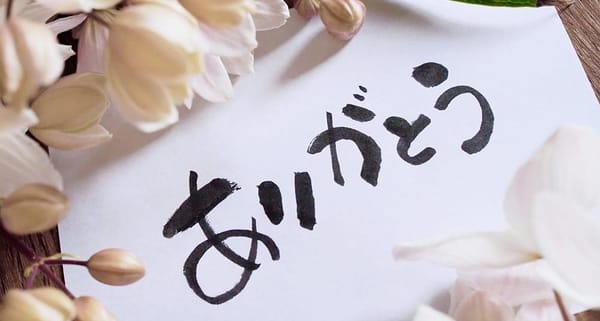“Sumimasen” Isn’t Always Sorry: Understanding Apologies in Japan
In Japan, “sumimasen” doesn’t always mean “sorry.” Learn how this versatile phrase expresses gratitude, humility, and social harmony — and how to use it strategically at work without undermining your confidence or authority.

You bump into someone on a crowded Tokyo train and say:
「すみません!」Sumimasen!
“Sorry!”
Later, your colleague says it when you hand them a document:
「すみません、助かりました。」Sumimasen, tasukarimashita.
“Thank you, that helped.”
And then your manager uses it to start a meeting:
「すみません、お時間いただいて。」Sumimasen, ojikan itadaite.
“Sorry to take your time.”
Hold on - why is everyone apologizing all the time? Here’s the secret that all Japanese intermediate learners know: “Sumimasen” in Japanese isn’t always an apology. Sometimes, it’s appreciation. Other times, it’s humility. Occasionally, yes, it’s regret. But more often, it’s a well-tuned social lubricant - smoothing over social edges without calling attention to them.
Apology as Social Glue, Not Guilt Admission
In many Western contexts, “sorry” is often tied to taking responsibility - even legal liability. But in Japan, apologies serve a broader purpose: maintaining harmony, humility, and respect in interpersonal relationships.
When a Japanese person says:
「すみません」 (sumimasen)
「申し訳ありません
…it’s not always because they’ve done something wrong. Sometimes it means:
- “I acknowledge that you’ve done something for me.”
- “I recognise the inconvenience I may have caused.”
- “I want to express consideration for your position.”
- “I’m entering this space and want to be polite about it.”
In short: apologising is often about positioning oneself in relation to others, not admitting fault.
A Quick Guide to Common Apology Phrases
Why “Sorry” Sometimes Means “Thank You”
Let’s take this real-world exchange. You hand your colleague a report you finished ahead of deadline. They say:
「すみません、助かります!」Sumimasen, tasukarimasu!
“Thanks, this really helps!”
Wait - why “sorry”?
Because sumimasen isn’t just “sorry” - it’s also a polite acknowledgment that someone else has done something for you. It reflects the speaker’s awareness of social obligation. They’re not apologizing for taking the report - they’re showing humility in accepting your help.
This nuance makes sumimasen one of the most versatile tools in Japanese communication. It’s a phrase that lets you enter or exit a moment without creating friction.
Apologies as Power Moves (Yes, Really)
Paradoxically, apologising in Japan can enhance your presence, especially for women in the workplace.
Here’s how:
- Apologising = Empathy:When used strategically, apologies signal emotional intelligence - an ability to anticipate and respond to others’ feelings. This builds trust.
Public Apologies Reinforce Authority:
When a manager says:
「ご迷惑をおかけして申し訳ありません」Gomeiwaku o okake shite mōshiwake arimasen
“I sincerely apologize for the inconvenience caused.”
…they’re not weakening themselves. They’re showing integrity and accountability.
Apologising Downward Shows Leadership:
Thanking and apologising to juniors for their time or effort, such as:
「急にお願いしてすみませんでした」Kyū ni onegai shite sumimasen deshita
“Sorry for the last-minute ask.”
…signals inclusive leadership.
When Not to Apologize: The Trap of Over-すみません
Foreign women in Japan often over-apologise to avoid conflict or seem polite - but beware. Repeating sumimasen unnecessarily can undermine your authority.
Consider this email opening:
❌「すみません、少しお願いがあるのですが…」Sumimasen, sukoshi onegai ga aru no desu ga…
Sorry, I have a small request…
Instead, try:
✅「お忙しいところ恐れ入りますが…」Oisogashii tokoro osore irimasu ga…
I humbly ask even though I know you’re busy
This keeps the humility without self-effacement.
Apologise Strategically, Not Habitually
“Sorry” in Japan isn’t weakness - it’s a social technology that helps people cooperate smoothly. Understanding when it means “thank you,” “excuse me,” or “humble acknowledgment” lets you use it with power and intention.
So next time you hear:
「すみません、助かりました。」Sumimasen, tasukarimashita.
…know that it’s not guilt - it’s gratitude wrapped in politeness. And when you say sumimasen, say it like a pro - with purpose.



